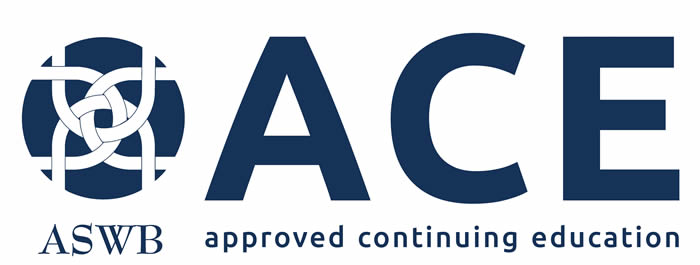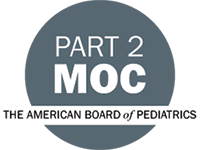
COURSE CREDITS & HOURS
14 AMA PRA Category 1 Credits™14 ACPE Credits
14.0 Contact Hours
14 CE Credits for Psychologists
14 ASWB ACE Credits
14 MOC (Part II) points in the American Board of Pediatrics' (ABP) Maintenance of Certification (MOC) program
4 Hours of Pharmacology for NPs
COURSE FEES
TARGET AUDIENCE
PROGRAM PURPOSE
Almost by definition these conditions require collaboration with providers outside of the traditional office setting including psychologists, school personnel, speech and occupational therapists. The physician's role in being able to provide a medical home for those patients and in be being able to communicate with entire team will be emphasized. The same principles hold true in being able to collaborate with the multiple medical specialists so often seeing the patient, for example, the children with ASD who have severe gastrointestinal challenges along with seizures.
Children with developmental disabilities represent a diverse population with a variety of causes, a variety of conditions and a wide range of developmental, behavioral and medical manifestations. The care of children with developmental disabilities, therefore, requires an appreciation of the complexities of diagnosis, and management involving medical care, promotion of optimal development and education, and attention to social, emotional, environmental and economic factors that influence the children, the family and the community.
This series of lectures will provide for the audience a framework for understanding the complex set of conditions characterized as developmental disabilities. In addition, there will be an orientation to the genetic and environmental factors that result in developmental disabilities and we will offer strategies for addressing these challenges to promote optimal health and well being for the children.
Topics:
- Introduction to Developmental Disabilities
- Prematurity and its Consequences
- Cerebral Palsy
- Children’s Environmental Health
- Environmental Health Disparities
- Environmental Influences on Fetal Growth and Development
- Medical Care for Children and Adults with Developmental Disabilities
- Autism in Children and Adolescents
- Autism in Adulthood
- ADHD in Children and Adolescents
- ADHD in Adulthood
- Anxiety Disorders in Children
Objectives:
- Orientation to the Course - need to understand the context of developmental disabilities in children
- Prenatal factors - important to appreciate the vulnerability of the fetus to prenatal influences and exposures
- Premature infants are vulnerable to CNS insults which result in developmental disabilities - need to appreciate the improved knowledge
- Cerebral palsy is the prototype of a motor disability- need to understand the complexities in presentation and management
- Children are uniquely vulnerable to environmental factors- need to appreciate and understand both positive and negative
- Children who grow up in circumstances of social and economic disadvantage - these children are more vulnerable
- Children who have developmental disabilities are more likely to have associated medical problems and we need to be aware of them, in order to to identify and treat them
- Identify common medical problems co-occurring with autism
- Identify the challenges that adults with autism encounter
- Implement screening and treatment programs in ADHD
- Screen for adults with ADHD in their practices
- Have an improved understanding of the way anxiety disorders manifest in children
















 Credit Designation for Social Workers: As a Jointly Accredited Organization, Continuing Education, Inc is approved to offer social work continuing education by the Association of Social Work Boards (ASWB) Approved Continuing Education (ACE) program. Organizations, not individual courses, are approved under this program. Regulatory boards are the final authority on courses accepted for continuing education credit. Social workers completing this course receive 14 Clinical continuing education credits.
Credit Designation for Social Workers: As a Jointly Accredited Organization, Continuing Education, Inc is approved to offer social work continuing education by the Association of Social Work Boards (ASWB) Approved Continuing Education (ACE) program. Organizations, not individual courses, are approved under this program. Regulatory boards are the final authority on courses accepted for continuing education credit. Social workers completing this course receive 14 Clinical continuing education credits.




























